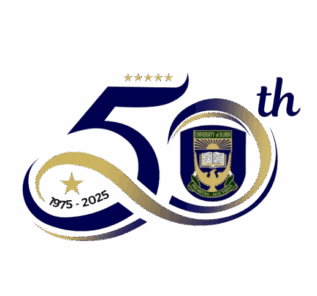By Mustafa Abubakar
The Vice Chancellor of the University of Ilorin, Prof. Wahab Olasupo Egbewole, SAN, has described the ongoing efforts to design Nigeria’s Artificial Intelligence (AI) Literacy Curriculum as “a timely intervention that will shape the future of the nation’s education sector.”
Prof. Egbewole stated this penultimate Wednesday (September 24, 2025), while declaring open the AI Literacy Curriculum Validation Workshop, organised by Brain Builders Youth Development Initiative (BBYDI) at the University of Ilorin.
The Vice Chancellor, who was represented by the Director of Academic Planning, Prof. AbdulRasheed Abiodun Adeoye, noted that the world is moving rapidly towards an AI-driven future, and Nigeria must not lag behind.
“Artificial Intelligence is no longer a luxury or a distant possibility. It is already redefining how societies learn, communicate, and solve problems. As a University, we will continue to support forward-looking projects like this one, which prepares our young people not just to consume technology, but to shape and drive it responsibly”, he said.
The Vice Chancellor further urged stakeholders to ensure that the curriculum speaks directly to Nigeria’s realities, stressing that localisation and inclusivity should not be negotiable.
Prof. Egbewole added that if the content does not reflect our environment, our languages, and our peculiar challenges, then it will not serve the purpose for which it is designed.
In his keynote address, a former Head of the Department of Information Technology at UNILORIN, Dr Mukhtar Oloyede, emphasised that AI is fast transforming societies across the globe and Nigeria must not be left behind.
He observed that the draft curriculum already provides a useful framework but needs more practical orientation.
According to him, “We must move from rhetoric to action by creating practical learning tools that are tailored to our communities. Our children should not only be told what AI is, they should be guided on how to use it ethically, creatively, and in ways that solve our local problems.”
In his welcome remarks, the Executive Director of BBYDI, Mrs Nurah Jimoh-Sanni, Esq., explained that the exercise was part of the long-standing commitment by the organisation, to empowering young people with transformative knowledge.
She stressed that AI literacy should not be regarded as an elite affair but as a civic right for every Nigerian child.
The BBYDI’s Communications Director, Mr Sanni Alausa Issa, provided an overview of the draft curriculum, explaining that it was designed to cover ethical considerations, responsible usage, and practical applications of AI in everyday life, while also creating advanced pathways for those pursuing careers in Information Technology.
Also speaking, the Kwara State Commissioner for Education and Human Capital Development, Dr Muhammad-Lawal Olalekan Olohungbebe, commended BBYDI for its foresight, affirming government’s commitment to policies that will make technology education inclusive and responsive to local realities.
Similarly, Mrs Bello Rekiyat, an Assistant Director of Child Services, who represented the Kwara State Commissioner for Women Affairs, also underscored the importance of adapting the curriculum to Nigeria’s unique cultural and developmental context.
Adding further perspective, Dr Musibau Lawal of the Department of Arts Education, University of Ilorin, advised that stronger teaching methodologies and evaluation mechanisms be incorporated, to ensure the programme does not remain theoretical.
Mrs Adeagbo Rukayat of UNILORIN Secondary School stressed that children between ages five and twelve should not be excluded.
“They are already exposed to technology at home, and this curriculum must address that reality,” she suggested.
Other participants, however, expressed concern over the short timeframe allotted for the curriculum review, describing it as “too short and unrealistic” for a thorough assessment. They recommended the development of a broader National AI framework to guide the final curriculum, ensuring alignment with Nigeria’s educational and technological priorities.
Highlights of the workshop included the formation of a five-member committee to collate and consolidate all feedbacks within two weeks.
